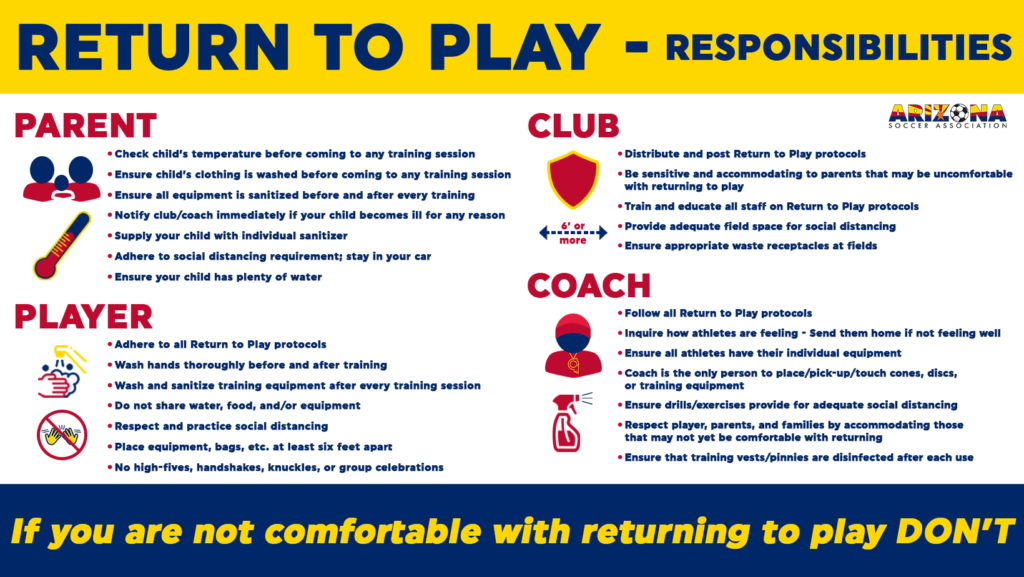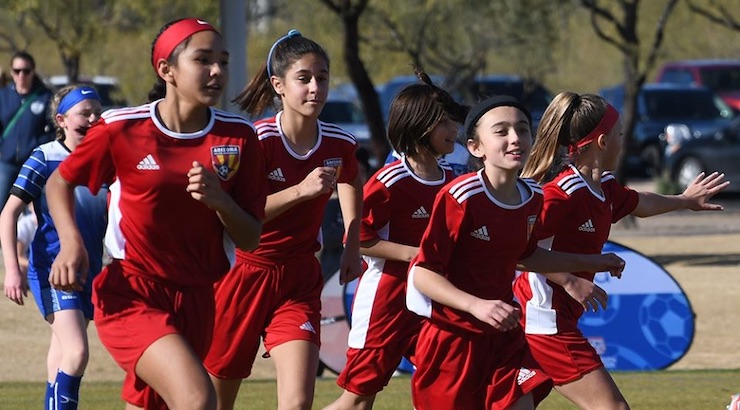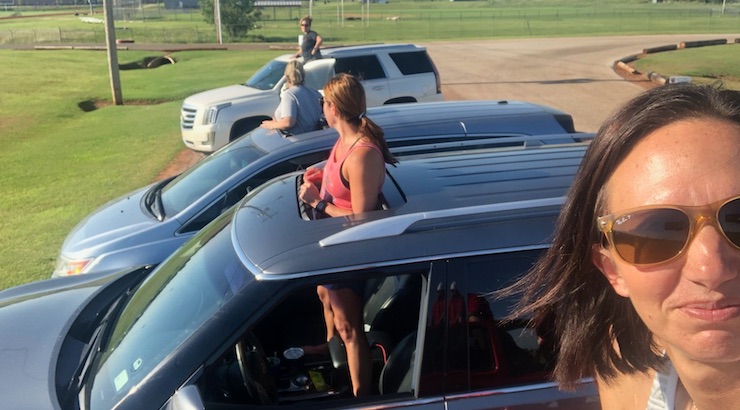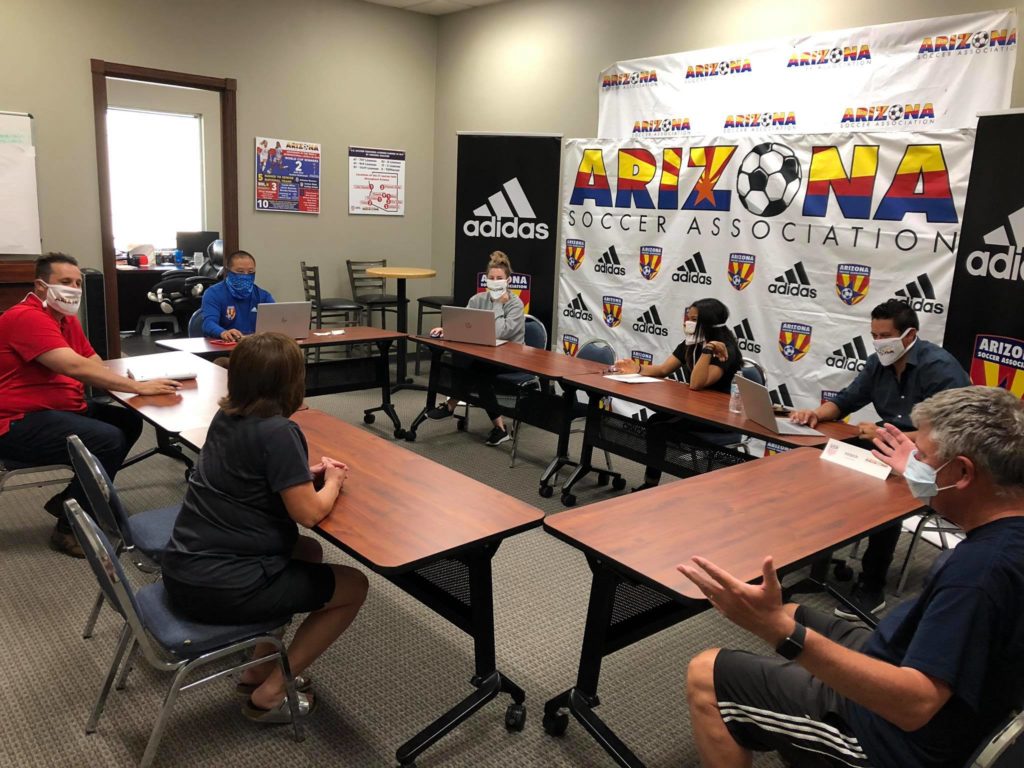Open The Fields And Please Let The Kids Play Youth Soccer
We have all read the reports concerning the importance of physical activity, mental health concerns, and other related issues of the stay at home orders and the restrictions on youth sports activities. Here is an important look at one of the more critical issues that is all too often kept silent.
Arizona has over 150,000+ confirmed cases of Coronavirus COVID-19 with 3,932 deaths reported as of August 6. In July, just under 2,000 new cases were reported during peak days. And, although Arizona is still a pandemic hotspot, however, life does go on.
Arizona Soccer Association, as with many youth sports organizations, continues to balance the health, safety, and well being of youth soccer players and believes opening soccer fields to begin playing games, locally, is something that will benefits youth statewide.
Obviously every part of America has counties with hotspots (where hospital availability is critically low) that need to stay under restrictions, but overall, how do we evaluate the pros and cons of the abundance of caution that keep some fields closed when perhaps the public would be better served if they were opened?
Read: CORONAVIRUS SHUTDOWN: SHARP RISE IN PLAYER DEPRESSION
Ultimately parents must also make the decision about if they are comfortable with their kids returning to play but, according to Kelsey, at least there should be more options. Arizona Soccer Association was one of the first to implement comprehensive safety guidelines for a phased Return To Play protocol.
Read: ARIZONA RETURNS TO PLAY — YOUTH SOCCER RESTARTS THIS WEEKEND
What is really happening to the kids? So often if organizations are not permitted to let kids play and provide structural oversight, renegade leagues, coaches and kids still find ways to play, and often without any of the safety protocols and safeguards that would be enforced, if organized play was allowed. And, then, there is the critical issue of who is safeguarding and protecting our most vulnerable kids from abuse?
Rick Kelsey, the Chief Executive Officer of Arizona Soccer Associations, works tirelessly for the benefit of youth players. We wanted to understand his perspective and goals as he pushes for fields to be open in his state.
SoccerToday Interview with Rick Kelsey
Diane Scavuzzo: Why should kids be allowed to play soccer while we are still in the midst of the Coronavirus COVID-19 pandemic?
Rick Kelsey: Since the pandemic hit the US, youth soccer players throughout the country have seen their access to friends, teammates, coaches, and extended family severely limited or ended altogether. They need and deserve an outlet that will promote their physical, social, and psychological development.
Diane Scavuzzo: How does youth soccer help minimize or keep a watchful eye on child abuse?
Rick Kelsey: As most people know teachers are deemed “mandatory reporters” and provided training to identify signs of abuse but with schools closed this can’t happen.
In an article posted on azcentral.com on June 15, it was reported that calls to the child-abuse hotline have dropped 27%. Unfortunately, this does not reflect a decrease in child-abuse, just in the reporting of the abuse or neglect.
What does this really mean for the kids? They are trapped without any outlets or any protective monitoring. According to the Department of Child Safety (DCS) Director Mike Faust, “There are kids in the community who are being abused or neglected simply because of the fact that they’re not in the public eye.”
With the passing of the SafeSport legislation, all Arizona Soccer Association (ASA) coaches obtain mandatory SafeSport certification.
The U.S. Center for SafeSport is an independent nonprofit committed to building a sport community where participants can work and learn together free of emotional, physical, and sexual abuse and misconduct.
With schools remaining closed, and if youth soccer players aren’t playing soccer, who is protecting our kids and helping to identify and report issues?
SafeSport teaches youth soccer coaches and team officials the signs to look for as well as a reporting mechanism when and or if any form of child abuse is suspected.

Diane Scavuzzo: What difference would your recommendations allowing youth soccer players to Return To Play make?
Rick Kelsey: It is our job to put the guard rails up.
As we all continue to manage our way through the COVID journey, we believe that it is our responsibility to do our best to establish protocols and standards that provide a framework that gives kids the opportunity to play soccer — in a safe and practical environment that is as low risk as possible for the kids, their coaches, and the communities in which they live and play.
We believe practices and games should be local and do not recommend extensive travel.
Masks are optional but we strongly encourage players wearing masks to and from the practice fields. We have asked coaches to wear masks as well, and or maintain social distances.

Diane Scavuzzo: What do the critics of reopening soccer fields believe?
Rick Kelsey: Overall, there is support to getting the kids back on the field. However, there are some concerns, and the biggest of which is the number of children who live in multi-generational homes, and the possibility of innocently spreading the Coronavirus … and getting their grandparents sick.
While this is something we need to be aware of, we also can’t forget about the number of kids who need this outlet.
Providing a comfortable, familiar environment where kids can be active and surrounded by friends and mentors can’t be ignored.
We understand that there is not a one-size fits all solution, but we can ensure that our solutions are thoughtful, responsible, and focused on keeping the kids and the community safe. Arizona’s Return To Play guidelines are strict and comprehensive.

Diane Scavuzzo How are you impacted by schools not opening?
Rick Kelsey: With schools not opening, but going online beginning August 5 many parents need a place for their children to go while the parents are away at work.
The Boys and Girls Club provides a safe haven for children during the day where they also receive support to stay current with their online studies. Arizona Soccer Association is partnering with the Boys and Girls Club and will host training sessions for the kids in order to give them an outlet and participate in soccer.
The Boys and Girls Club provides a safe haven for children during the day where they also receive support to stay current with their online studies. Arizona Soccer Association is partnering with the Boys and Girls Club and will host training sessions for the kids in order to give them an outlet and participate in soccer.
For example, Arizona Soccer Association (ASA) is partners with Boys and Girls Club Metro Phoenix through the development and delivery of clinics and futsal programming. The futsal programming has been made possible through a US Soccer Innovate to Grow Fund grant that enabled ASA to purchase futsal goals, futsal balls, cones, pinnies, etc for 13 Boys and Girls Clubs. Along with this equipment, ASA has been providing US Soccer Coaching Education to Boys and Girls Club staff.
The Boys and Girls Club provides a safe haven for children during the day where they also receive support to stay current with their online studies. Arizona Soccer Association is partnering with the Boys and Girls Club and will host training sessions for the kids in order to give them an outlet and participate in soccer.
For example, Arizona Soccer Association (ASA) is partners with Boys and Girls Club Metro Phoenix through the development and delivery of clinics and futsal programming. The futsal programming has been made possible through a US Soccer Innovate to Grow Fund grant that enabled ASA to purchase futsal goals, futsal balls, cones, pinnies, etc for 13 Boys and Girls Clubs. Along with this equipment, ASA has been providing US Soccer Coaching Education to Boys and Girls Club staff.

As a final note, I wanted to say that as we continue to work to address the spread of the Coronavirus, it is imperative that youth soccer parents become disciplined in staying in their cars and maintain strict social/physical distancing. According to the Arizona Department of Health, the most heavily infected age group is 20 – 44 years old. This demographic represents a significant percentage of ASA parents.
Here is a story about child abuse stats in Arizona that was published on June 15.

For more information on the Coronavirus in Arizona, please visit the Arizona Department of Health COVID Dashboard.
Read: CORONAVIRUS COVID-19 IMPACTING SOCCER, AYSO’S SCOTT SNYDER ON COVID-19 & GETTING PLAYERS BACK ON THE FIELD and #HEALTHYTogether: ATHLETES, IOC, WHO & UN JOIN TO FIGHT COVID-19





